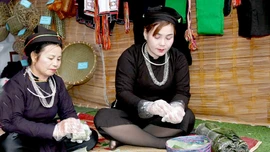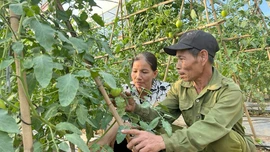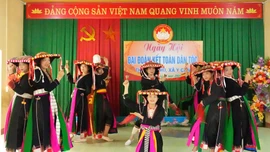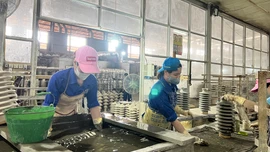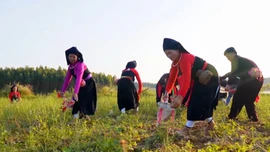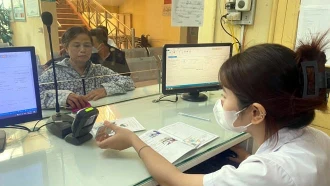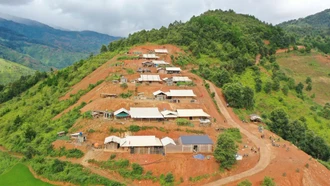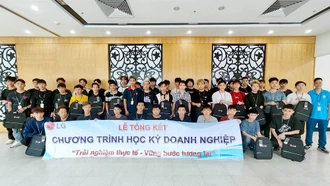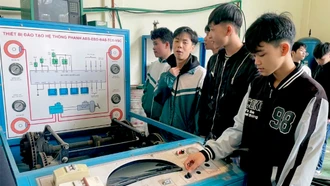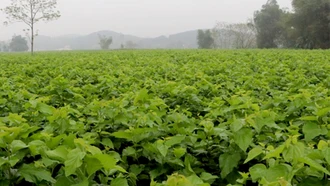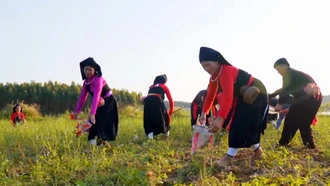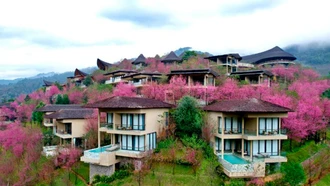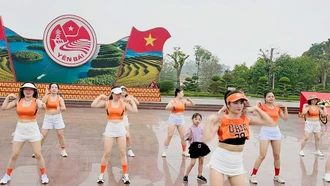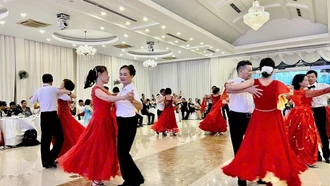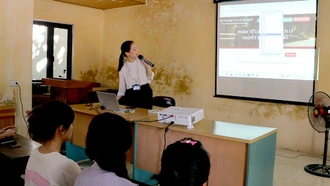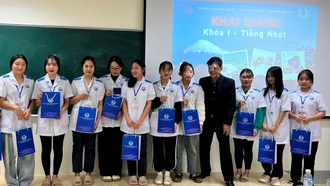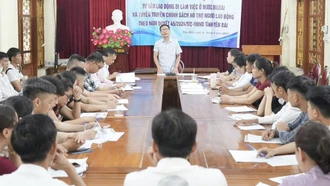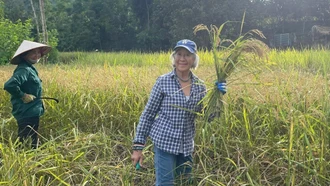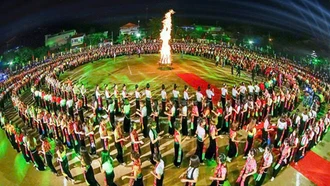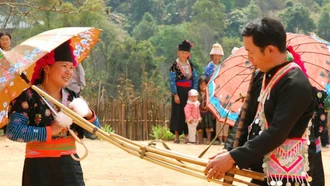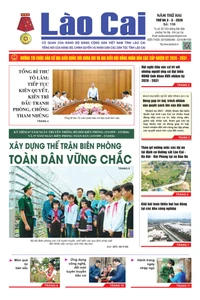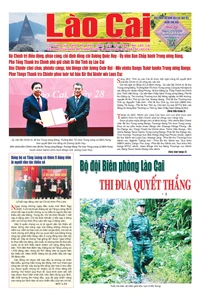After more than a decade of continuous effort, Nam Khat Commune in Mu Cang Chai District has successfully met all 19 NRD criteria. The decision to recognize Nam Khat as a new rural commune was officially announced on March 5, 2025 — a source of pride not only for Mu Cang Chai District but for the entire Yen Bai Province. To achieve this milestone, the commune mobilized over VND 500 billion in total funding, including more than VND 70 billion in contributions from local people, in the form of cash, land donations, and volunteer labor.
By early 2025, the commune’s per capita income had exceeded VND 46 million per year, and the poverty rate had dropped dramatically from 81.1% in 2010 to just 6.49%. Sharing the joy of this success, Mr. Thao A Phenh, Chairman of Nam Khat Commune People's Committee, stated: "This is the result of solidarity and consensus among the Party, government, and all the people of Nam Khat, along with significant support and investment from the province and district. Achieving NRD standards has not only changed the appearance of our villages but, more importantly, significantly improved the material and spiritual life of the people. We are very proud and will continue striving to maintain and further enhance these achievements.â€
With Nam Khat meeting NRD standards, Mu Cang Chai District has officially shed its status as a "blank†district with no NTM-qualified communes — resolving one of the most difficult and critical bottlenecks in Yen Bai Province’s NRD program.
According to Mr. Giang A Cau, Secretary of the Mu Cang Chai District Party Committee, the success of Nam Khat and the district’s removal from the "blank†list proves the effectiveness of the province’s and district’s decisive direction and the implementation of innovative, locally appropriate approaches. The district focused on building NRD from the village level, where 14 out of the 19 criteria are directly relevant. This has become a great motivation for Mu Cang Chai to continue striving to bring more communes to NRD status, contributing to the overall development of the province.

The rose cultivation model in Nam Khat Commune, Mu Cang Chai District, brings economic efficiency, stable employment, and income for local residents.
Alongside Nam Khat, Suoi Giang Commune in Van Chan District was also recognized as meeting NRD standards in the first quarter of 2025. By the end of Q1 2025, the province had 121 out of 146 communes achieving NRD status, reaching nearly 83%. In addition, 39 communes were recognized as advanced NRD communes, and 13 as exemplary NRD communes. Notably, five district-level administrative units in Yen Bai have fulfilled or completed NRD construction tasks, with Tran Yen District meeting the standards for an advanced NRD district.
To achieve these impressive results, Yen Bai mobilized massive resources — totaling over VND 33 trillion between 2021 and 2024. More important than funding, however, was the consensus and joint effort of the people. Over the past five years, residents across the province voluntarily donated over 200 hectares of land, contributed 550,000 working days, and over VND 500 billion in cash to repair and build new transportation and irrigation infrastructure.
The NRD program has truly transformed the face of rural Yen Bai, creating spacious, clean, and beautiful living spaces; synchronously investing in socio-economic infrastructure — especially transportation; and continuously improving the material and spiritual well-being of the population. Per capita income in NRD districts has risen significantly — for example, exceeding VND 57 million per year in Van Yen District — contributing to improved happiness indices and a sharp reduction in poverty rates. Importantly, the NRD program also aims to improve the "happiness index of the people,†a comprehensive and humane approach.
Successfully eliminating "blank NRD districts†not only demonstrates a strong commitment to narrowing development gaps and improving livelihoods in disadvantaged areas but also lays a solid foundation for the next phase of in-depth NRD development. Yen Bai considers NRD to have "a starting point but no ending,†aiming toward a prosperous agriculture sector, wealthy farmers, and modern, civilized rural areas.
Hung Cuong







